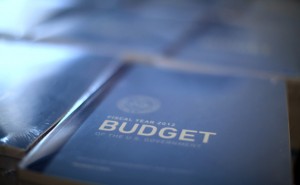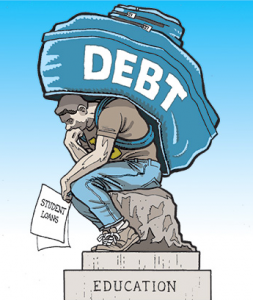May 11, 2012
 The tools of budgeting all come down to a basic process of keeping track of income and expenses in one location. This makes it possible to target areas of over-spending and arrange a projected budget that is both realistic and oriented towards saving. Just as the old days of using a hand-held calculator and accounting pad gave way to computerized spreadsheets and stand-alone programs, newer methods have been supplanted in recent years by internet-based programs.
The tools of budgeting all come down to a basic process of keeping track of income and expenses in one location. This makes it possible to target areas of over-spending and arrange a projected budget that is both realistic and oriented towards saving. Just as the old days of using a hand-held calculator and accounting pad gave way to computerized spreadsheets and stand-alone programs, newer methods have been supplanted in recent years by internet-based programs.
Tweaking categories and establishing limits is still an individualized matter, but it is no longer necessary to transfer the numbers from each account into a centralized system. Online money management tools are capable of accessing accounts for which they are given your login information, but this feature is not a given due partly to security reasons.
Many programs are available, and choosing the best depends upon which you find most compatible with your financial needs. Since all these programs are free, advertising should not be a surprise. Some of the most popular tools for financial planning are:
Mint
Mint is the most versatile and user-friendly of the options available. Login information is easily entered for a fast and comprehensive accounting of everything from monthly spending patterns to total net worth. One of the more valuable features is its ability to gather as much information as is stored in the account. Investment accounts entered into the system will be tracked on a weekly basis.
The downside for some users will be the automated budgeting. Preset totals are attached to every category, and it will take some time to configure these for your individual needs. Until you do, expect to face reminders and overspending warnings regularly. Initial setup can take around an hour, and it will take more time to get the program matched up with your financial life.
Wesabe
This program offers some of the same features as Mint, such as the ability to pull data from multiple accounts and automatically compile net worth, liquid assets and debt. If you have been using Quicken, this is a good choice for now. Mint does not yet support importing from Quicken, but Wesabe does support this option. One feature Wesabe does boast is an active user forum.
Importing from Quicken is the only way to get around the need to manually categorize types of spending, which is one drawback. Another downside is that Wesabe does not function with some accounts, which means you are stuck without information or having to manually enter it.
Manual Upload
Many free programs are available for monitoring your finances on the go, and most of them require manual upload of information. Before thinking this is more trouble than it’s worth, consider some of the advantages of sites like BudgetPulse, moneyStrands, and Buddi.
Since there is no account information entered, there is no risk of your accounts being compromised by hacking of these third-party sites. They are also more functional due to simplicity. Manual uploading may seem like time travel to the past after experiencing Mint, but these alternatives often include community, small business, and other group tools.
It is worth the time to find a program that best fits your financial situation and personality. Budgeting is the first step to overcoming debt and planning for the future. The only thing you’ll lose from a poor choice is time.
Tags:
Budget,
budgeting,
financial planning,
Financial Tools,
money,
Online Tools,
Save Money,
savings
May 3, 2012
 Saving for your retirement can seem like a daunting task for most folks today, but it is something that should be every working person’s goal and ultimate aspiration. Despite the seemingly impossible task of saving up for your own retirement, especially at the last moment, there are little ways that you can consider that can bring you closer to your goal of saving for retirement, without having to work like a mule. Here are a few tips on how to increase your retirement savings:
Saving for your retirement can seem like a daunting task for most folks today, but it is something that should be every working person’s goal and ultimate aspiration. Despite the seemingly impossible task of saving up for your own retirement, especially at the last moment, there are little ways that you can consider that can bring you closer to your goal of saving for retirement, without having to work like a mule. Here are a few tips on how to increase your retirement savings:
Downgrade – Simple living is best
Living on the edge of their means is one of the reasons why a lot of individuals find it difficult to save up for retirement. It is quite common now-a-days to find people that are living well beyond their means. People who are in a situation like this are wasting money that could potentially be saved and used for their retirement schemes. Contrary to what people say, living simply is not something to be ashamed about – so if you’re looking for a fast way to save more for your retirement, then consider downgrading your living expenses is one great way to go about it.
Invest
Try investing in businesses or other secure means, this can increase your overall income and is another great way to save up for retirement money quicker. Not all investments promise a good or profitable turn-over in the end, so choose businesses that you want to invest in wisely. Businesses that have a strong long term grow potential are good, so are businesses that cater to the masses have the best chances of providing you with a steady profit.
Pension offers are opportunities
If the company you’re working for offers retirement benefits or saving pools, consider chipping in a little of your income into it. A little goes a long way. Pensions and benefits are also a great means to help out with your retirement savings goals. Availing of healthcare and pensions can add to your savings by cutting down on the need to look for more money. Because these types of benefits can be earned while you’re still in working prime, you can be sure that you’ll have a substantial amount by the time you do decide to call it quits and put your feet up.
Prioritize
If you want to meet a specific amount of money to realize your retirement dreams, then you really have to prioritize for it. Coming up with a viable sum that is more than what you’d expect to spend for the duration of your retirement and beyond, should be the main outline of any savings schemes. It is wise to plan ahead in order to set priorities, but it is also important to set a goal beyond the expected amount that you think would need for a comfortable retirement.
Pooling all of the profits from the above mentioned tips should provide you with enough provender to retire in comfort or at least meet you basic needs, given that you don’t expect anything extremely extravagant or opulent. Investing and not spending beyond your means is the key to a successful savings and retirement plans.
Planning for a retirement needn’t be stressful or difficult. Everything can be planned out and achieved with good old fashioned hard work, determination, and foresight. Utilizing holistic tips like these as part of your overall retirement plan will definitely help to improve your financial situation now, and will also ensure that you will have more savings available for when you are finally ready to retire.
Tags:
budgeting,
Finance for insurance,
financial planning,
money,
Retirement,
Retirement Planning,
savings
April 24, 2012
 The Budget is rarely an occasion for celebration, and Chancellor George Osborne’s announcement that plans to increase fuel duties by 3p per litre would not be dropped has been met with negative reception from many British motorists, who feel they are already being charged too much for fuel.
The Budget is rarely an occasion for celebration, and Chancellor George Osborne’s announcement that plans to increase fuel duties by 3p per litre would not be dropped has been met with negative reception from many British motorists, who feel they are already being charged too much for fuel.
These new fuel duties will go into effect from August 2012, and a number of motoring groups have voiced their criticism of the initiative, which will cause cash-strapped motorists to be even more out of pocket. With the price of unleaded petrol rising above £1.40 in many parts of the UK, motorists will be paying more than ever before at the petrol pump.
Osborne has defended his decision by pointing to his previous scrapping of the fuel tax escalator in the March 2011 budget, which he explained would have made fuel 6p more expensive at present, if still in effect. This has reportedly saved motorists a total of £4.5 billion according to the Guardian newspaper, but many people feel more could have been done to combat the rising cost of motor fuel.
It’s not only fuel prices that were affected by the recent budget either, with the CO2 emissions threshold for company cars also being reduced from 160g per km to 130g from April 2013, which will penalise employees driving less fuel-efficient vehicles and medium-sized cars in general. However, diesel drivers may benefit from the change, with the dropping of the 3% diesel tax supplement from 2016.
If you’re concerned about the impact of the Budget on your day-to-day driving, switching to a more fuel efficient vehicle could be the most effective way to shield yourself from rising fuel prices, although this is not an economical option for everyone. Finding out how your driving habits could be consuming more fuel than necessary can also be very useful for helping a full tank last longer, such as avoiding stop-start driving or taking alternative routes to avoid traffic congestion.
Now is the ideal time to make these changes to your driving habits, with fuel price increases showing no signs of slowing down. Over the last two years, the monthly fuel bill for a family with two petrol cars has reportedly risen over the last year, and unleaded petrol is expected to have hit £1.50 by the time the new fuel duties are in effect in August. Comparing car insurance to find the best deals and buying used parts for repairs could help you save money in other aspects of car ownership.
Tags:
Budget,
budgeting,
Car,
economy,
money,
personal finance
April 18, 2012
 Student loans, if not properly managed, can become a burden that devastates a young professional out of college. Defaulting on payments can ruin a burgeoning credit rating, and an inability to pay the loan at all can lead to years of bankruptcy. Any loan is a risk, and long term loans can have a draining effect on an individual. The question then is how to avoid potentially costly debt as the cost of higher education continues to rapidly increase?
Student loans, if not properly managed, can become a burden that devastates a young professional out of college. Defaulting on payments can ruin a burgeoning credit rating, and an inability to pay the loan at all can lead to years of bankruptcy. Any loan is a risk, and long term loans can have a draining effect on an individual. The question then is how to avoid potentially costly debt as the cost of higher education continues to rapidly increase?
Take Only What You Need
Avoid excess debt by calculating exactly how much you need to borrow in order to complete your schooling. By avoiding excess debt, you can keep the amount owed low and thus payments will be smaller and more manageable. Being frugal for four years can be the difference between good credit and defaulting.
Budget
A defined budget both during and after college can be beneficial in avoiding defaulting on payments. By maintaining the habit of operating within your means, and evaluating your income as such that you can make your payments and lead a normal life, you will know exactly how much you are paying and to what ahead of time. By sticking to a budget you will never accidentally miss a payment, while at the same time saving enough to cover any emergencies that have not been accounted for.
Credit Cards
As a general rule you do not want to stack debt upon debt. A common occurrence in today’s world is the living from month to month on the back of credit card debt, hoping that the next month will be the month where you finally “Catch up.” Credit cards are a money sink, the high amount of interest makes paying off the debt exceptionally hard, and missing a single payment can increase the interest. By accruing credit card debt, student loans become harder to pay, and more of your monthly income gets consumed in interest payments. Credit cards should be avoided as often as possible.
Be Timely and Maintain Records
Do not leave payments to the last minute. Stay on top of your debt, note all the payments, and keep track of what is owed. Maintaining an understanding of your debt is imperative if you intend to pay it off. Slacking off or avoiding keeping records can leave you at a loss when you need that information the most. Questions about when money was paid or received can go a long way toward avoiding a credit score mishap.
Keep Your Lender Informed
Changes in address and phone number can occur quite frequently. It is not enough to simply notify your local post office of the address change. By keeping your lender informed you will avoid possible missed payments due to a mailing error. Small errors can have large repercussions and it is wise, even if occasionally inconvenient to stay ahead of the curve when dealing with your personal finances and the parties involved with your fiscal well being.
Seek Help if Necessary
Admitting to financial problems is often shameful and difficult. The inability to pay one’s bills in a given month can create a cascade effect that can affect one’s finances for years. Though it is difficult, when financial problems present themselves it is best to seek assistance from friends or family if possible in order to avoid problems in the future. If such assistance cannot be obtained inform your lender and see if anything can be done to help.
Construct a Plan
Constructing a financial plan can help assess where one stands and how to achieve financial freedom in the future. A financial plan should carefully measure ones income against one’s expenses, and through such evaluation weed out unnecessary expenses. The plan should convey a solid idea of when debts will be cleared, and should be regularly adjusted as salary and expenses either increase or decrease. Constructing such a plan takes dedication and requires individuals to maintain solid records and be willing to extricate themselves from activities or purchases that can have an adverse effect on their budget. A financial plan can be a valuable tool in overcoming the difficulties of dealing with debt as one enters the workforce.
One of the advantages of student loans is their ability to help create good credit for young adults beginning their lives independent from their parents. The difficulty arises from the lack of knowledge regarding debt and debt management. Asking most college graduates to deal with debt is like asking a child to run before it can crawl. There are no solid foundations in place that educate young adults in the proper methods for budgeting, planning, and debt management. Therefore the impetus is upon the individual to seek out and find the resources that will make him or her better prepared for life after college.
Tags:
budgeting,
debt,
economy,
financial planning,
loans,
money,
personal finance,
student loans
March 28, 2012
 One of the things that people find little success with is budgeting. No matter how hard they try, the ability to make both ends meet seems to be elusive for most people. The sight of fashionable clothes, the latest gadgets, vacation in the island is simply too tempting to pass up. Finding it hard to budget your expenses? Here are some tips on how you can master the art of making both ends meet.
One of the things that people find little success with is budgeting. No matter how hard they try, the ability to make both ends meet seems to be elusive for most people. The sight of fashionable clothes, the latest gadgets, vacation in the island is simply too tempting to pass up. Finding it hard to budget your expenses? Here are some tips on how you can master the art of making both ends meet.
Before learning how to budget, try to determine the reasons for not being able to meet your budget. There are plenty of reasons for such failure. For one, you might not have prioritized your expenses. Come up with a list and then sort them from the most important to the least important. Likewise, determine which is discretionary expenses. These are items that you usually buy but can afford to live without.
Food and shelter should be on the top of your list. These are basic needs that support your survival. The next most important are the utilities such as water and electricity. A car loan is discretionary expenses because it is part of your budget but you can live without it. Unnecessary expenses should be at the bottom of your list.
After you have listed down your priorities, classify them into monthly and weekly expenses. While learning how to budget, you will come to the realization that your expenses will be greater than your income. Deduct the expenses from the income and you will come up with your potential savings for the month.
To cut down on your expenses, you need to take away your bad habits. If you have a vice such as smoking or drinking, it could also affect your budget plan. Reduce your intake of alcohol or cigarettes and you will see your expenses come down. Doing this will also have some beneficial effects on your health.
There are many ways you can cut down on your expenses. For example, rather than buy coffee from Starbucks, buy a coffee maker or travel mug and make your own coffee instead. If you are living in an expensive apartment, consider moving to a smaller unit. If you are going to a location just a few blocks away from your house, why don’t you walk instead? You will not only reduce your gasoline expenses but also get some form of exercise.
For credit card bills, always contact the credit card company if you will be unable to pay your bills on time. Explain to them your current situation. I am sure they will be able to help you out in coming up with a more affordable payment plan.
Personal budgeting entails supplementing your income and reducing expenses. This way, you will be able to better manage your personal finances. However, if your financial problem is already overwhelming and budgeting is no longer working, it is best to seek professional help.
Perhaps the best advice for learning how to budget is to live within your means. If you cannot afford to have an LCD or plasma television, a standard cable television will suffice. Bear in mind that success will not come in a blink of an eye. You need to work hard until you are able to master the art of budgeting.
Tags:
Budget Planning,
budgeting,
financial planning,
Makre Monay,
money savings
 The tools of budgeting all come down to a basic process of keeping track of income and expenses in one location. This makes it possible to target areas of over-spending and arrange a projected budget that is both realistic and oriented towards saving. Just as the old days of using a hand-held calculator and accounting pad gave way to computerized spreadsheets and stand-alone programs, newer methods have been supplanted in recent years by internet-based programs.
The tools of budgeting all come down to a basic process of keeping track of income and expenses in one location. This makes it possible to target areas of over-spending and arrange a projected budget that is both realistic and oriented towards saving. Just as the old days of using a hand-held calculator and accounting pad gave way to computerized spreadsheets and stand-alone programs, newer methods have been supplanted in recent years by internet-based programs.




Recent Comments